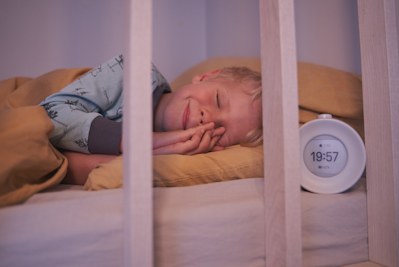
How Old Should Your Child Be Before Owning a Smartphone?
Before you give your child a smartphone, consider all of the pros and cons. If a child gets an electronic device too soon, it may cause some issues with their mental development or even physical health after long-term usage.
Applications on mobile devices are designed to be addictive and overuse will have an impact on sleep when they are being used before bedtime. Blue light at night can disrupt the body’s naturally occurring rhythms by suppressing the release of the hormone melatonin.[1] A good night’s sleep is especially important for children, so as parents or carers we need to remember to limit the time our children spend on mobile phones.
If you are thinking about giving your child a smartphone, let’s find out if they are ready for it first.
How many children have a smartphone?
On average almost 70% of the world’s population own a smartphone, according to the Pew Research Center’s study from 2015. How many of them are children? There is no specific information on that but there are a lot of different reports on the mobile phone usage of children which could lead us to some interesting conclusions.
A study provided by Influence Central has shown that the average age of a child who owns a smartphone is close to 10 years old. In 2015, a nonprofit organization from the UK, Internet Matters, provided a survey to parents of children between 8-11 years old. It showed that 65% of those children owned a smartphone and even 11% of them got it by the age of 8.
Moreover, research from the American Academy of Pediatrics has revealed that almost all children (96,6%) had used some kind of mobile device before turning four years old. Many of them started looking at the screen before the age of one. This is because their parents gave them mobile phones or tablets for entertainment or to keep them calm. We’re sure you know young children who can use electronic devices without any help. The study has shown that most are even able to engage in media multitasking.
Read also: The Benefits of Teaching your Child to Monotask
If the parents knew that mobile devices might be harmful to their children, would they give them tablets or smartphones to play with?
Researchers all over the world are interested in how mobile devices affect humans. Modern, omnipresent technology is developing so fast it reaches children in their youngest years. This has caused several scientists to consider the possible adverse health effects of long-term electronic device usage among children. We have listed three research projects below which relate to this.
Children have proportionally smaller heads and brains but receive the same levels of mobile phone radiation as adults during regular mobile phone usage. This means that they suffer a higher exposure of their brain regions than adults as was proved by a 2010 study[2]. The American Academy of Pediatrics comments on that, saying: “the average RF energy deposition is two times higher in the brain and 10 times higher in the bone marrow of the skull when a mobile phone is used by children, compared with its use by adults”[3].
A different study showed that people who begin using mobile phones before the age of 20 are more likely to develop brain tumours. This is linked to the fact that children’s tissues and bones are thinner than adults so they are more exposed. The risk is still not very high but we need to be aware it is greater than it was before.[4]
There is also a study linking children’s hyperactivity or behavioural problems to prenatal mobile phone exposure. 80% of children whose mothers used a lot of electronic devices during pregnancy have developed such difficulties later in life.[5]
What if you want to keep in touch with your child?
It is understandable that mobile phones help in everyday life. Your child may call you after their classes, such as basketball training or ballet lessons, so you know when to pick them up. You might feel better when you know that your child may text or call you anytime if something’s wrong.
Does a child really need a smartphone to do that? You probably remember so-called ‘dumbphones’ with no WiFi connection and no built-in camera. They still enable a child to make calls or even send messages. This is a good choice for younger children.
With this kind of phone, they can keep in touch with their parents and won’t spend long hours staring at a screen. There is nothing to look at, no games, no Internet, no social media. This already limits a child’s exposure because they are forced to use a mobile phone only in certain situations – to contact someone, not to entertain themselves.
Young girls listening to music from an early generation iPhone
What about older children? If your child goes to high school, they will have a lot of different friends. Many of them are already smartphone users. Teenagers use their phones to always stay in touch with friends from school, to visit their social media profiles and stay up-to-date with trends. They are very vulnerable and they don’t want to feel excluded or worse off than others. Not having the latest smartphone when ‘everybody else has it’ may be one of the reasons they feel bad.
They might even cry for a week in an attempt to convince their parents that they really need it. As a parent, you need to remember that a teenager is still a child and should be prepared for owning a smartphone. You can easily teach your child to use a mobile phone responsibly, including activities that may lower exposure to mobile radiation (with the use of wired headphones during calls etc.). It is important because building good habits early makes a child safer and healthier for life.
The information from user manuals stating that electronic devices should be kept at a specific distance from the body while in use is significant. Very few people remember this but that note is included with each smartphone, tablet or laptop. On average, it is about 1 cm for a smartphone and 20 cm for a tablet or laptop.[6]
Parents should inform their children that making long calls on a mobile phone which is placed directly to the head is not a good idea. As we already know, phones emit radiation which interferes with brain tissues. It is advised to use a headset while talking via phone. Smartphones should not be kept in bed while sleeping as radiation has an impact on the quality of rest (75% of preteens and early teens sleep all night with their phones under the pillow).[7] If you want to know more about reducing exposure you can teach your child to use a smartphone responsibly.
What age is appropriate for a first smartphone?
Smartphones have access to the Internet, built-in cameras and a mobile application for anything you want: social media, games, etc. It is a whole world in one, small electronic device. If you give it to your child, you should be aware that it may change their lifestyle. That is why psychologists say that the age of children is not as important as their awareness of what the technology means.[8] Some teenagers are socially mature by the age of 12 and others may be childish and unreasonable even when they turn 16.
If you want advice from someone who knows a lot about technology, read about what Bill Gates did as a parent. In one of his interviews,[8] he said that he didn’t let any of his children get their own mobile phone until the age of 14. He was certain that electronic devices were unnecessary in his children’s lives. When they finally got them, phones were not allowed during mealtimes and as a family, they often set a no screen time rule for everybody, especially before going to sleep.
In most parents’ opinion, the minimum age at which their child can get a smartphone is 10-years-old. The issue is seriously discussed especially when a child is between 10 and 12-years-old but there is no simple answer. It’s essential to prepare your children to use a smartphone. Maybe they are ready for it sooner than you think but teaching them about safe usage, the impact of mobile radiation and last but not least the addictive nature of technology will help them in the long term.
Is there anything you’d like to add, have we missed anything? If you’re interested in sharing your experiences with us or writing a guest post for us, send us an email via hello@mudita.com!
Please feel free to get in touch via social media (send us some photos or videos too), you can find us on Facebook, Twitter and Instagram, let’s connect! To learn more about Mudita, take a look at our website and our other posts.
If you enjoyed reading this article, please share and recommend it!
Related stories

Expert Tips for Adjusting to a School Sleep Routine
Ease your child into the back-to-school routine with expert tips on adjusting sleep schedules, reducing screen time, and creating a calming bedtime atmosphere.

Kids & Sleep: The importance of Sleep Hygiene in Children
Sleeping is essential for the body to recuperate and get ready for the following day.

Well-rested kids are happy kids (and also happy parents)!
”Happiness consists of getting enough sleep. Just that, nothing more.” — Robert A. Heinlein
If you'd like to receive the best stories from our blog, keep up to date with our progress and get notified about our product releases and special discounts.